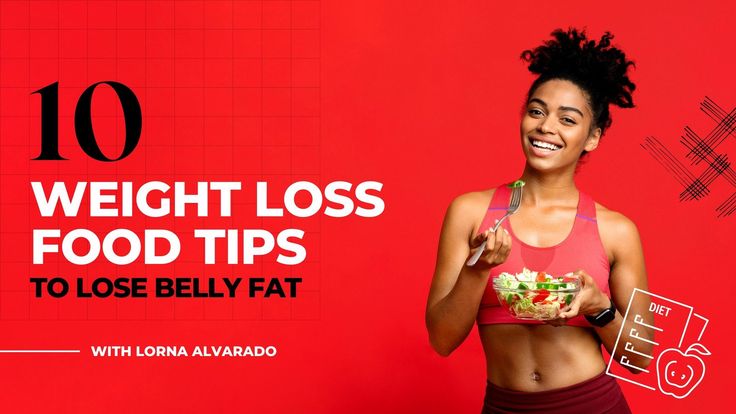Introduction
If you’ve ever wondered why some people seem to eat endlessly without gaining weight, while others struggle despite dieting, the answer often lies in metabolism. It’s a term thrown around in weight loss discussions, yet many people don’t fully understand what it means.
In this article, we’ll explore:
- What metabolism actually is
- The different components of metabolic rate
- Factors that influence metabolism
- How it affects weight loss
- Myths and misconceptions
- Practical ways to boost metabolism naturally
By the end, you’ll know exactly how to work with your metabolism instead of against it.
What is Metabolism?
Metabolism refers to all the chemical processes in your body that keep you alive and functioning—such as breathing, digesting food, circulating blood, and repairing cells.
When it comes to weight loss, people usually talk about metabolic rate—the number of calories your body burns in a day.
Components of Metabolism
- Basal Metabolic Rate (BMR): Calories your body burns at rest (60–70% of daily energy).
- Thermic Effect of Food (TEF): Calories used to digest and absorb food (10%).
- Physical Activity: Workouts, chores, walking (15–30%).
- Non-Exercise Activity Thermogenesis (NEAT): Small movements like fidgeting, standing, taking the stairs.

How Metabolism Affects Weight Loss
Your metabolism determines how many calories you burn each day.
- Fast metabolism: Burns more calories, making weight loss easier.
- Slow metabolism: Burns fewer calories, making it harder to stay in a calorie deficit.
But here’s the truth: Most people don’t have a “broken” metabolism—they simply consume more calories than they realize or move less than they think.
Factors That Influence Metabolism
1. Age
Metabolism slows as you age due to muscle loss and hormonal changes.
2. Muscle Mass
Muscle tissue burns more calories than fat, even at rest. More muscle = higher metabolism.
3. Gender
Men typically have a faster metabolism than women because of higher muscle mass and testosterone.
4. Genetics
Some people are naturally predisposed to a faster or slower metabolism.
5. Hormones
Thyroid hormones, insulin, leptin, and cortisol all influence metabolism.
6. Dieting History
Prolonged calorie restriction can temporarily slow metabolism (adaptive thermogenesis).
7. Lifestyle & Sleep
Poor sleep, high stress, and low activity reduce metabolic efficiency.
Myths About Metabolism
❌ “Skinny people just have fast metabolisms.”
Not always. They may simply eat less or move more without realizing it.
❌ “Eating late at night slows metabolism.”
Metabolism doesn’t shut down at night—it’s total calories that matter.
❌ “You can’t change your metabolism.”
You can’t completely rewrite genetics, but lifestyle choices can significantly influence metabolic rate.
How to Boost Your Metabolism Naturally
1. Build Muscle with Strength Training
Muscle is metabolically active. Lifting weights helps increase BMR, meaning you burn more calories even while resting.
2. Increase Protein Intake
Protein has the highest thermic effect of food (20–30%). Eating more protein boosts calorie burn during digestion.
3. Stay Active Throughout the Day (NEAT)
Take the stairs, walk while on calls, stand more often—small actions add up.
4. Prioritize Sleep
Lack of sleep reduces metabolic efficiency and increases hunger hormones. Aim for 7–9 hours.
5. Drink Enough Water
Water supports cellular processes and slightly increases calorie burn (especially cold water).
6. Incorporate High-Intensity Workouts (HIIT)
HIIT increases calorie burn during and after workouts due to excess post-exercise oxygen consumption (EPOC).
7. Avoid Crash Dieting
Eating too few calories for long periods can slow metabolism. A moderate calorie deficit is better for long-term success.
8. Eat Small Balanced Meals (if it suits you)
Meal frequency doesn’t “speed up” metabolism significantly, but eating balanced meals helps regulate hunger and prevents overeating.
Metabolism and Adaptive Thermogenesis
When you diet for an extended period, your body adapts by slowing metabolism—a survival mechanism.
- You burn fewer calories during exercise.
- Hunger hormones increase.
- Energy levels drop.
This is why weight loss often stalls. The solution: diet breaks or reverse dieting (gradually increasing calories back to maintenance).
Foods That Support a Healthy Metabolism
While no food “magically” speeds metabolism, some can support it:
- Protein-rich foods: eggs, lean meats, legumes, tofu
- Spicy foods: chili peppers, cayenne (capsaicin may increase calorie burn slightly)
- Green tea & coffee: contain caffeine, which boosts energy expenditure
- Whole grains & fiber: improve satiety and digestion

Psychological Strategies for a Healthy Metabolism
- Consistency over perfection: Avoid yo-yo dieting.
- Sustainable habits: Build routines you can maintain long-term.
- Mindful eating: Helps prevent overeating, supporting calorie balance.
Frequently Asked Questions
Can you permanently speed up metabolism?
Not drastically. But by building muscle, staying active, and eating well, you can optimize it.
Does metabolism slow down after 30?
Yes, mostly due to loss of muscle and lower activity—but strength training and good habits prevent this.
Are “metabolism boosters” worth it?
Most supplements claiming to boost metabolism are ineffective. Focus on diet, exercise, and sleep first.
Conclusion
Metabolism plays a critical role in weight management, but it’s not destiny. While genetics and age influence it, your daily choices have a huge impact. By building muscle, eating protein-rich foods, staying active, sleeping well, and avoiding extreme dieting, you can support a healthy metabolism that makes weight loss and maintenance easier.
The key takeaway: Don’t blame a slow metabolism—build habits that optimize it.

